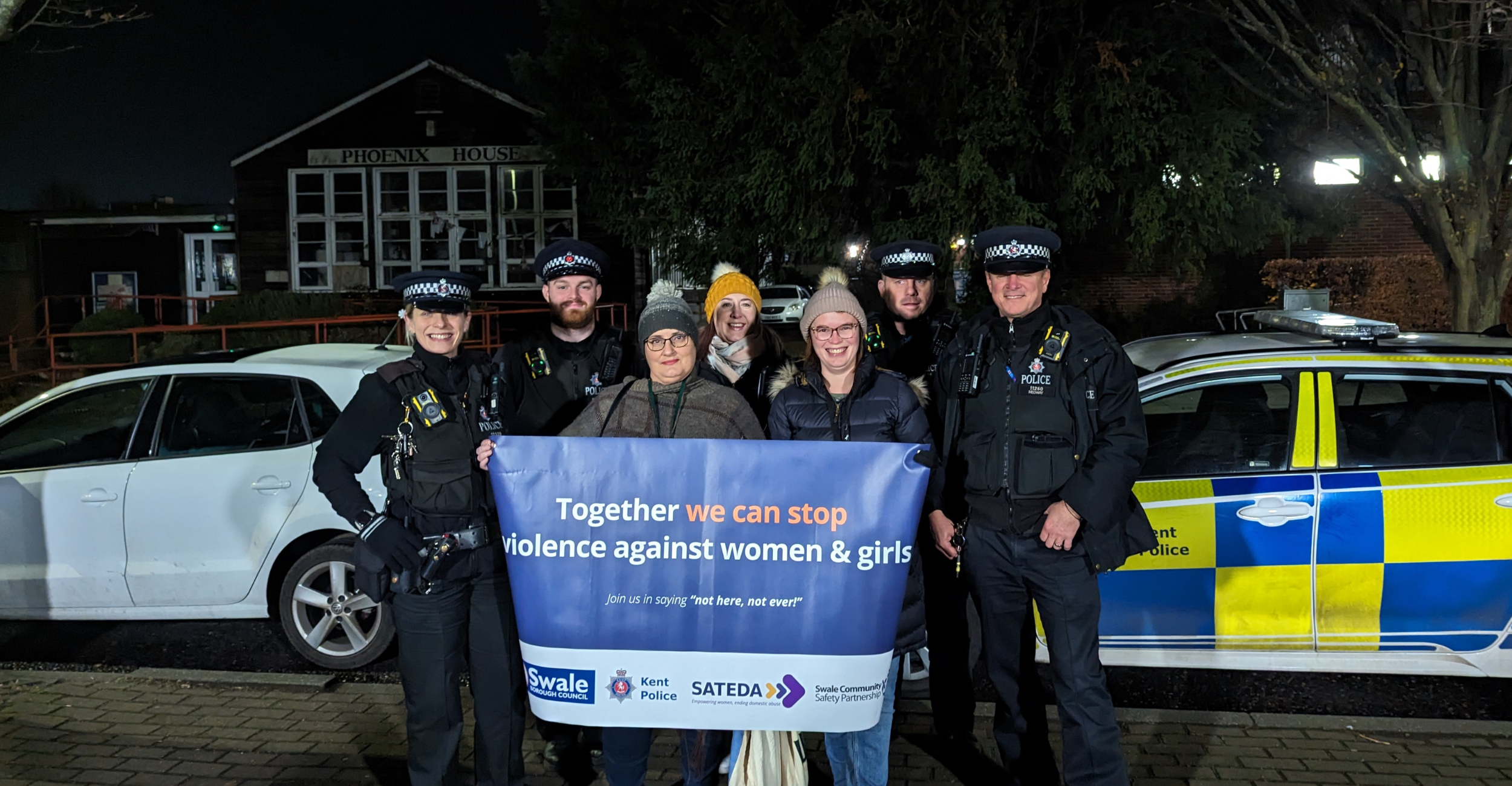
Active bystander training
Published
Tuesday 21 May, 2024
Updated
Sunday 16 June, 2024

Our Safer Streets campaign has been working to make a difference in Sittingbourne and Sheerness town centres, but for lasting change everyone within the community needs to work together to create a safer place for all.
That is why we funded training for over 300 residents, through active bystander courses, to be able to identify and safely intervene when they find themselves in or near trouble.
This training has equipped people with the valuable skills to recognise and react to harmful or dangerous situations, and how to offer support to others who are in difficult circumstances.
It also teaches people how to identify the early signs, before there is any apparent danger, and explores the psychology behind why people don’t intervene in situations even when they want to.
The training is underpinned by the importance of personal safety, but having this knowledge can help people know how best keep themselves and those around them safe.
We understand it can be scary to intervene but if everyone stands together and calls out the negative behaviour we witness, we can all make a big difference.
Folkestone and Hythe District Council helped us fund the 10 sessions, which were delivered by specialists from Cultivating Minds UK.
What does it mean to be an active bystander
People who have had active bystander training have the knowledge and tools to feel confident in how to act in negative situations, including:
- Taking direct action: call out negative behaviour, tell the person to stop and ask the victim if they’re okay
- Distracting: interrupt, start a conversation with the perpetrator, use an excuse like asking for the time
- Delegating: if you don’t feel you can get involved, ask someone else to (e.g. bar staff or door staff)
- Delaying: if it’s too dangerous, call the police and wait for the situation to pass, then check on the victim
Train the trainers
We wanted the lessons of being an active bystander to continue being shared once the Safer Streets campaign was over, so we funded two more train the trainer sessions.
These in depth four-day courses enable individuals from organisations or businesses to train others on how to tackle violence against women and girls and other harmful situations.
The “Bystander train the trainer” events show people how to intervene and prevent harmful and dangerous situations and, importantly, gives them the skills to pass this training onto others.
This training was attended by people in a position to train others such as staff from; local charities, councils, security firms, Network Rail, Kent Police, the NHS and more.
Graham Goulden, founder of Cultivating Minds UK, said being an active bystander isn't about putting yourself in dangerous situations but is about keeping yourself and those around you safe.
He explained: the training helps you be more active in your communities, in your friendship groups and your workplaces, and gives you tools that you can use to keep yourself safe.
“We explore why we don't intervene in situations even when we really, really want to intervene, and then help motivate you to do what you want to do, do the right thing.
“I firmly believe that you have the power to make a difference, I really believe that prevention of any issue starts in a community, and that’s you."



